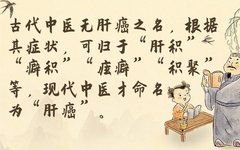

Expert Interpretation: Xing Yufeng, Department of Hepatology, Shenzhen Traditional Chinese Medicine Hospital
Author: Shi Congcong, Fourth Clinical Medical College, Guangzhou University of Chinese Medicine
Primary liver cancer refers to malignant tumors originating from liver cells or the epithelial cells of the intrahepatic bile ducts. It is one of the most common cancers globally. In 2020, liver cancer ranked 6th in incidence and 3rd in mortality among malignant tumors worldwide. In China, liver cancer ranked 4th in incidence and 2nd in mortality. In 2020 alone, there were approximately 410,000 new cases and about 391,000 deaths, accounting for nearly 50% of global liver cancer deaths.

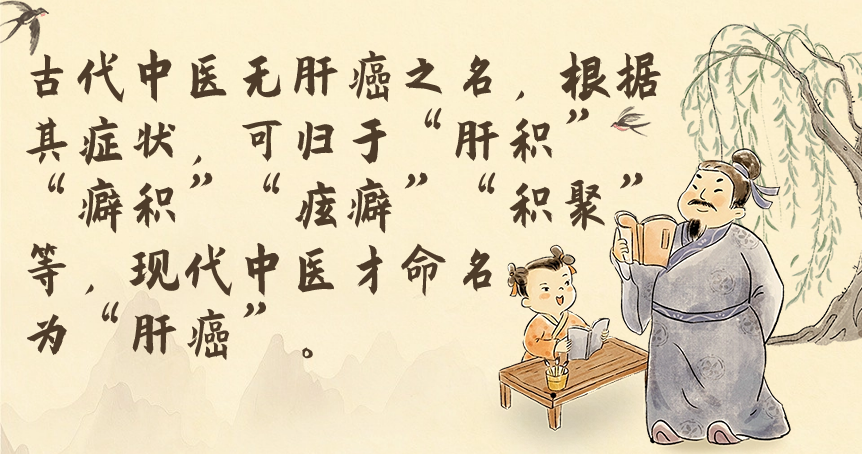
Currently, common treatment methods for liver cancer include surgical resection, interventional therapy, targeted immunotherapy, and liver transplantation.
Most patients experience symptom improvement after treatment, but recurrence is common. Traditional Chinese Medicine (TCM) has unique advantages and good clinical efficacy. Guided by the “Support the Right and Expel the Evil” theory from the Huangdi Neijing, TCM can provide differential treatment for liver cancer patients, often achieving improvements in clinical symptoms and preventing recurrence. This can alleviate patients’ fear of cancer, enhance their quality of life, and extend their lifespan, allowing some patients to live with tumors.
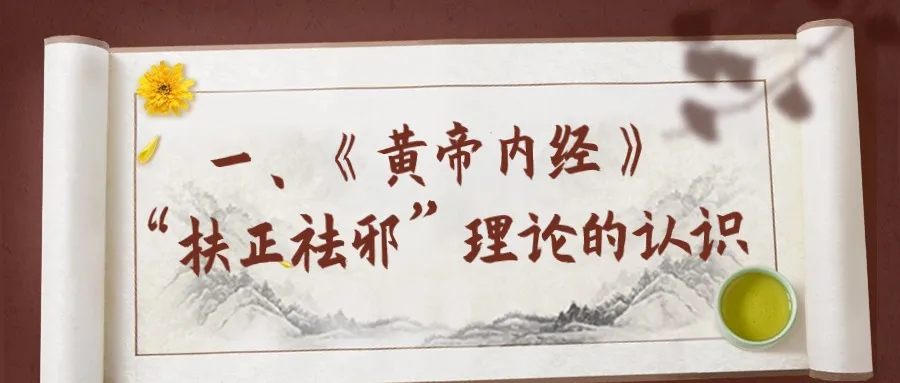
According to the Suwen: On Acupuncture Techniques: “When the right qi is preserved internally, evil cannot invade.” In the Suwen: On Febrile Diseases: “Wherever evil gathers, its qi must be deficient.” The Ling Shu: On the Origin of Diseases: “A strong person does not accumulate, but the weak do.” This indicates that when the right qi is abundant and preserved internally, evil qi cannot invade; if evil qi invades the body, it is due to the weakness of the internal right qi. Strong individuals are less likely to develop accumulations, while the opposite is true for the weak. The Zhong Zang Jing: On Accumulation: “Accumulations, masses, and parasitic diseases occur when the true qi of the five organs and six bowels is lost and evil qi accumulates, leading to disease.” This also points out that the occurrence of accumulations, masses, miscellaneous diseases, and parasitic accumulations is due to the loss of true qi from the five organs and six bowels, insufficient right qi, and excessive evil qi. Therefore, the basis for the onset of liver cancer is the weakness of the right qi and the invasion of evil qi, with the deficiency of the right qi as the root and the excess of evil qi as the manifestation.
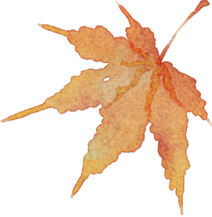
According to the Ling Shu: On Meridians: “When there is excess, drain it; when there is deficiency, tonify it.” In the Suwen: On the Great Discussion of the Six Origins: “Great accumulations and masses can be attacked, but when the majority is weakened, stop.” This indicates that when evil qi is excessive, draining methods should be used, and when the right qi is weak, tonifying methods should be employed, which aligns with the “Support the Right and Expel the Evil” theory. It also indicates that diseases characterized by great accumulations and masses can be attacked with toxic substances, primarily to expel the disease, but when the disease has been reduced by more than half, medication should be stopped, allowing the right qi to recover without leaving evil qi behind, and expelling evil qi without harming the right qi.

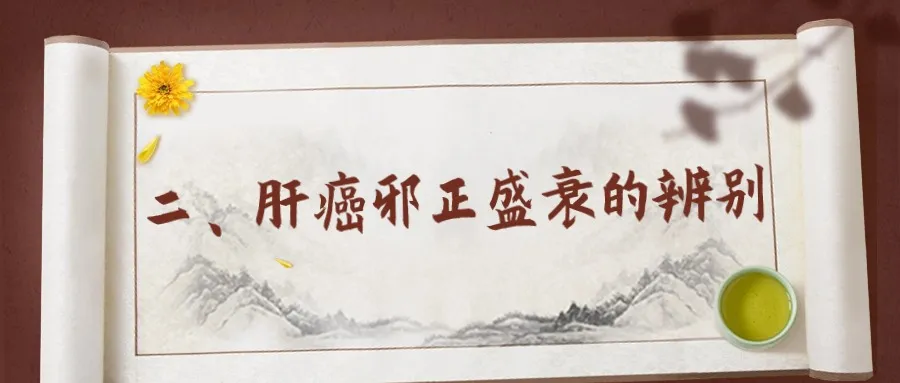
Once liver cancer is diagnosed, it is necessary to determine the balance of evil and right qi. Clinically, it is commonly divided into early, middle, and late stages based on its natural course.
Early Stage: The right qi is still strong, and the evil qi is shallow, or the cancerous mass is limited to a part of the affected organ, presenting a pattern of wood excess and earth deficiency. At this time, systemic symptoms are not obvious, or there may be emotional distress, fatigue, poor appetite, and diarrhea.
Middle Stage: The right qi is weaker, and the evil qi is deeper, or the cancerous mass has affected nearby organs. At this time, not only does the liver mass enlarge, but other organ-related symptoms and systemic symptoms also appear.
Late Stage: The right qi is severely depleted, and the evil qi invades, affecting the lower jiao, presenting signs of liver and kidney deficiency. Due to dysfunction of the liver, spleen, stomach, and kidneys, the overall condition is significantly weakened, often manifesting as progressive weight loss, muscle wasting, bone atrophy, mental fatigue, and persistent pain, or the cancerous mass may invade extensively or have distant metastases.
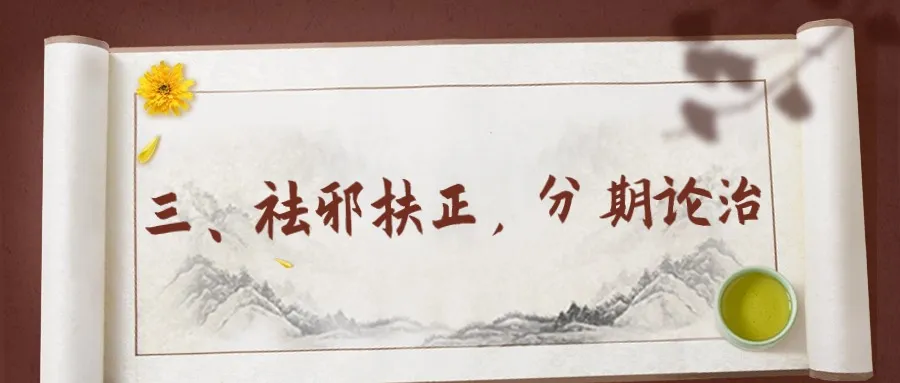
Early Stage
In the early stage of liver cancer, the disease course is short, the right qi is strong, and the evil qi is shallow, with the main manifestation being the excess of evil qi. The focus is on attacking the evil qi. The herbs used to expel evil qi include Ban Zhi Lian (Barbatula), Bai Hua She She Cao (Oldenlandia), Shan Ci Gu (Rhizoma Dioscoreae), Mu Li (Oyster Shell), Xia Ku Cao (Prunella), Yi Yi Ren (Coix Seed), E Zhu (Curcuma), and Tu Fu Ling (Smilax). The main methods include regulating qi, activating blood, resolving phlegm, and dispersing masses. Clinically, multiple methods are often used in combination to control or eliminate the cancerous mass as early as possible.
Middle Stage
In the middle stage, evil qi is excessive, and the right qi is deficient, presenting as an excess of evil qi and deficiency of right qi. Treatment should combine attacking and tonifying. The tonification at this stage aims to enhance the body’s resistance to disease to assist in expelling evil qi. Common methods include tonifying qi, nourishing yin, and warming yang.
Late Stage
In the late stage, the right qi is severely depleted, and the evil qi invades, characterized by deficiency of right qi. Treatment should focus on supporting the right qi. The tonifying herbs include Liujunzi Decoction (Six Gentlemen Decoction) modified: Tai Zi Shen (Pseudostellaria), Chai Hu (Bupleurum), Fa Ban Xia (Pinellia), Dang Shen (Codonopsis), Zhi Gan Cao (Honey-fried Licorice), Sha Shen (Glehnia), Mai Dong (Ophiopogon), and Huang Qi (Astragalus), aiming to improve the patient’s quality of life and extend their lifespan.

Evil qi is not the qi that should be present in the body; it is harmful qi, hence it is called evil qi. Treatment must expel it from the body. The first step in treating disease is to attack the evil qi; once the evil is gone, the person will be at peace. The purpose of expelling evil qi is to allow the right qi to flourish and strengthen. Supporting the right qi involves assisting the right qi and mobilizing positive factors within the body, achieving the goals of resolving accumulations, dispersing masses, promoting water metabolism, transforming stasis, detoxifying, and resolving phlegm. Thus, expelling evil qi helps the right qi to be preserved and nourished, while supporting the right qi can achieve the purpose of expelling evil qi. The two are closely related; expelling evil qi is equivalent to supporting the right qi, and supporting the right qi aims to expel evil qi.

Liver cancer occurs due to various factors damaging the body’s right qi, leading to insufficient right qi and the accumulation of pathogenic evil qi within the body. The struggle between right and evil qi can change; the different strengths of right and evil qi correspond to different stages of liver cancer.
-
Early Stage: Right qi is strong, and evil qi is excessive, focusing on attacking evil qi;
-
Middle Stage: Evil qi is excessive, and right qi is deficient, requiring a combination of attacking and tonifying;
-
Late Stage: Right qi is deficient, and evil qi invades, focusing on supporting the right qi.
Distinguishing between supporting the right qi and expelling evil qi, and applying treatment at the appropriate time, aims to restore organ function, improve clinical symptoms, enhance quality of life, and extend survival time.
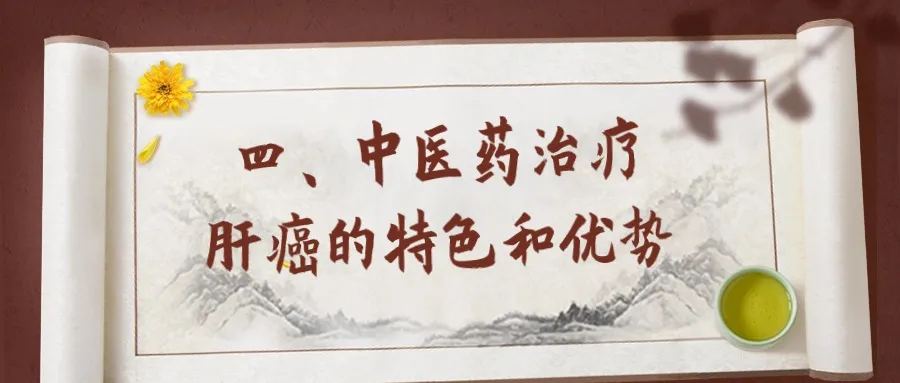
With its holistic perspective and differential treatment characteristics, TCM is widely used in the clinical treatment of liver cancer. It can enhance immunity, resolve stasis, detoxify, and soften masses. For liver cancer patients who cannot undergo systemic treatment, TCM differential treatment is the best supportive therapy.
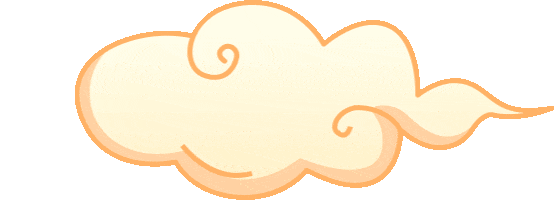
TCM can participate throughout the various stages of Western medicine treatment, improving efficacy and preventing recurrence, with a detoxifying and enhancing effect.

For precancerous lesions, TCM can delay canceration by resolving accumulations and transforming stasis.

Post-surgery, if systemic symptoms arise, such as disharmony of qi and blood or weakness, TCM can tonify qi and blood, regulate immunity, and promote the patient’s rapid recovery.

TCM can alleviate gastrointestinal symptoms, bone marrow suppression, functional decline, and inflammatory toxic side effects from interventional and targeted therapies.

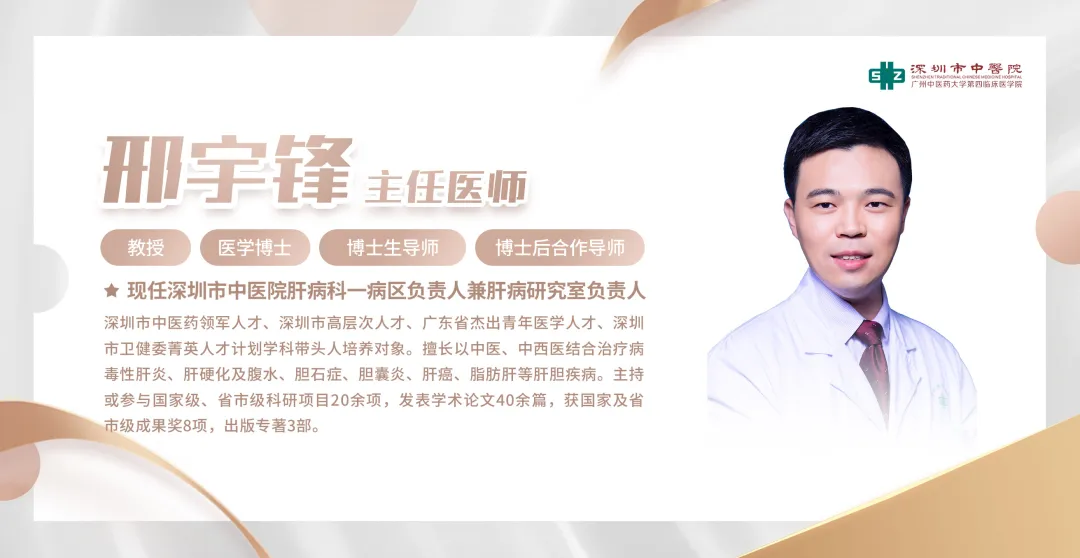
[Department Introduction]
Introduction to the Department of Hepatology, Shenzhen Traditional Chinese Medicine Hospital (Click to learn more)


